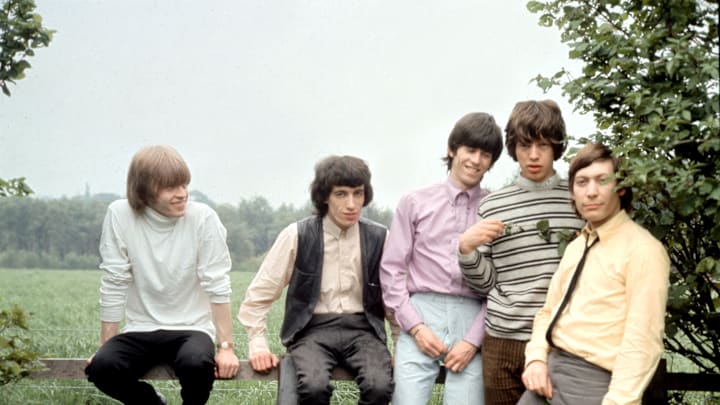Former Rolling Stones bassist Bill Wyman, AKA "The Quiet Stone," has shared that leaving the band in 1993 was one of the best decisions he ever made — though, in retrospect, he wishes he had done it much earlier.
Wyman, who played with the Stones from their inception in 1962 until his departure, opened up in a recent interview about the financial and personal strains that contributed to his decision to part ways with the legendary rock band. Wyman revealed that financial difficulties plagued the band during his tenure, despite their immense success. He even said "We had no f***ing money" at one point.
While iconic albums like Beggars Banquet and Let It Bleed propelled the Rolling Stones to global fame, mismanagement and the UK's punitive 93% tax rate under Prime Minister Harold Wilson created significant hardships. Former manager Allen Klein controlled the band’s earnings, leaving members like Wyman to "beg" for money when they needed it. Wyman explained they weren’t partying all the time; they were worrying about paying the bills.
Obviously, this claim stands in stark contrast to the image of rock stars instantly building wealth by prancing around onstage. Wyman explained, "I just had enough." At one point, Wyman says he faced a bank overdraft of £200,000, despite years of touring and recording. It's a bit of a revelation, when some will argue the Stones embody the very spirit of rock and roll. How could someone in such a big band be struggling?
Why this claim by Bill Wyman matters
This financial disparity was allegedly stark within the group — frontmen Mick Jagger and Keith Richards, who owned the rights to most of the band’s songwriting royalties, amassed wealth, while Wyman and others, like Charlie Watts and Ronnie Wood, purportedly struggled. As he put it: "Mick and Keith were totally wealthy, but me, Charlie and Ronnie were scraping by..."
The bassist described his frustration at the band’s seven-year hiatus leading up to the Steel Wheels and Urban Jungle tours from 1989 to 1990, which were meant to revitalize the group’s fortunes with songs like "Shattered." Although these tours marked a commercial rebound, Wyman was already considering leaving. He had grown disillusioned with the grind of touring and had long-standing ambitions outside music, including writing, photography, and archaeology.
"I only started playing with them again in the hope it’d only be a couple of years," he reflected. But thirty years on, he's still catching up on the things he wanted to do. Wyman’s decision to leave was not easily accepted by the band.
He recalled the other members’ disbelief, recounting multiple conversations in which they dismissed his resignation. Even two years after his departure, the group reportedly asked if he was still part of the band. Despite their being one of the biggest bands in the history of rock and roll, Wyman stood firm, explaining that he was "so happy to leave" in the end, despite the interpersonal tensions his exit created.
Life after the Rolling Stones
Since leaving, Wyman has focused on his varied interests, including writing books and playing charity cricket. He also released new solo music, with his album Drive My Car marking his first in nine years. Meanwhile, the Rolling Stones continued to thrive commercially, but Wyman has expressed no regrets about walking away from their meteoric trajectory.
Wyman’s story underscores the less glamorous (possibly shocking, especially if true) reality of life in one of the world’s biggest rock bands, highlighting the complexities of fame, alleged financial inequities, and personal fulfillment. That being said, the Rolling Stones don't face the same difficulties of perhaps being underrated, which is something frequently said about The Kinks.
